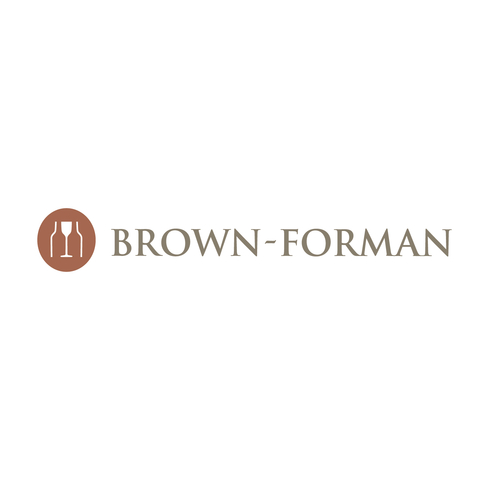LOUISVILLE, Ky.--(BUSINESS WIRE)--Brown-Forman Corporation (NYSE:BFA,BFB) announced today that Marshall Farrer, President, Europe, will expand his leadership responsibilities and be named Executive Vice President, Chief Strategic Growth Officer, effective January 1, 2023.
In addition to stewarding Brown-Forman’s European business, Farrer, in his new role as Chief Strategic Growth Officer, will work closely with Lawson Whiting, President and CEO, and the entire Brown-Forman Executive Leadership Team, on developing key partnerships and new growth opportunities to achieve the company’s short-term objectives and long-term ambitions.
“Marshall’s understanding of our consumers, the spirits industry, and the global market trends will help unlock new pathways to growth for Brown-Forman,” said Whiting. “His expertise at advancing strategic initiatives, opportunities, and relationships, coupled with 24 years of global spirits knowledge, make Marshall the ideal person to not only lead our European business, but also take on this important corporate development work.”
Farrer has served on the Executive Leadership Team since 2020. In his role as President, Europe, he leads Brown-Forman’s operations in the owned distribution markets of the United Kingdom, Germany, France, Poland, Spain, Czechia, Belgium, and Luxembourg as well as the remaining developed markets in Europe utilizing partners for distribution. He is also a member of the Brown-Forman Board of Directors, joining in 2016, and a fifth-generation Brown family shareholder.
Farrer is based in Amsterdam, Netherlands. He serves as an executive sponsor for SEED, Brown-Forman’s first employee resource group established outside of the United States, which endeavors to challenge stereotypes as well as inspire, empower, and educate employees about the unique experiences of different racial groups and ethnicities.
About Brown-Forman:
For more than 150 years, Brown-Forman Corporation has enriched the experience of life by responsibly building fine quality beverage alcohol brands, including Jack Daniel's Tennessee Whiskey, Jack Daniel's Tennessee RTDs, Jack Daniel's Tennessee Honey, Jack Daniel's Tennessee Fire, Jack Daniel's Tennessee Apple, Gentleman Jack, Jack Daniel's Single Barrel, Woodford Reserve, Old Forester, Coopers’ Craft, The GlenDronach, Benriach, Glenglassaugh, Slane, Herradura, el Jimador, New Mix, Korbel, Sonoma-Cutrer, Finlandia, Chambord, Fords Gin, and Gin Mare. Brown-Forman’s brands are supported by approximately 5,200 employees globally and sold in more than 170 countries worldwide. For more information about the company, please visit brown-forman.com. Follow us on LinkedIn, Instagram, and Twitter.
Important Information on Forward-Looking Statements:
This press release contains statements, estimates, and projections that are “forward-looking statements” as defined under U.S. federal securities laws, including statements regarding executive responsibilities and strategic actions. Words such as “aim,” “anticipate,” “aspire,” “believe,” “can,” “continue,” “could,” “envision,” “estimate,” “expect,” “expectation,” “intend,” “may,” “might,” “plan,” “potential,” “project,” “pursue,” “see,” “seek,” “should,” “will,” “would,” and similar words indicate forward-looking statements, which speak only as of the date we make them. Except as required by law, we do not intend to update or revise any forward-looking statements, whether as a result of new information, future events, or otherwise. By their nature, forward-looking statements involve risks, uncertainties, and other factors (many beyond our control) that could cause our actual results to differ materially from our historical experience or from our current expectations or projections.
These risks and uncertainties include, but are not limited to:
- Our substantial dependence upon the continued growth of the Jack Daniel’s family of brands
- Substantial competition from new entrants, consolidations by competitors and retailers, and other competitive activities, such as pricing actions (including price reductions, promotions, discounting, couponing, or free goods), marketing, category expansion, product introductions, or entry or expansion in our geographic markets or distribution networks
- Route-to-consumer changes that affect the timing of our sales, temporarily disrupt the marketing or sale of our products, or result in higher fixed costs
- Disruption of our distribution network or inventory fluctuations in our products by distributors, wholesalers, or retailers
- Changes in consumer preferences, consumption, or purchase patterns – particularly away from larger producers in favor of small distilleries or local producers, or away from brown spirits, our premium products, or spirits generally, and our ability to anticipate or react to them; further legalization of marijuana; shifts in consumer purchase practices; bar, restaurant, travel, or other on-premise declines; shifts in demographic or health and wellness trends; or unfavorable consumer reaction to new products, line extensions, package changes, product reformulations, or other product innovation
- Production facility, aging warehouse, or supply chain disruption
- Imprecision in supply/demand forecasting
- Higher costs, lower quality, or unavailability of energy, water, raw materials, product ingredients, or labor
- Impact of health epidemics and pandemics, including the COVID-19 pandemic, and the risk of the resulting negative economic impacts and related governmental actions
- Unfavorable global or regional economic conditions, particularly related to the COVID-19 pandemic, and related economic slowdowns or recessions, low consumer confidence, high unemployment, weak credit or capital markets, budget deficits, burdensome government debt, austerity measures, higher interest rates, higher taxes, political instability, higher inflation, deflation, lower returns on pension assets, or lower discount rates for pension obligations
- Product recalls or other product liability claims, product tampering, contamination, or quality issues
- Negative publicity related to our company, products, brands, marketing, executive leadership, employees, Board of Directors, family stockholders, operations, business performance, or prospects
- Failure to attract or retain key executive or employee talent
- Risks associated with acquisitions, dispositions, business partnerships, or investments – such as acquisition integration, termination difficulties or costs, or impairment in recorded value
- Risks associated with being a U.S.-based company with a global business, including commercial, political, and financial risks; local labor policies and conditions; protectionist trade policies, or economic or trade sanctions, including additional retaliatory tariffs on American whiskeys and the effectiveness of our actions to mitigate the negative impact on our margins, sales, and distributors; compliance with local trade practices and other regulations; terrorism; and health pandemics
- Failure to comply with anti-corruption laws, trade sanctions and restrictions, or similar laws or regulations
- Fluctuations in foreign currency exchange rates, particularly a stronger U.S. dollar
- Changes in laws, regulatory measures, or governmental policies – especially those that affect the production, importation, marketing, labeling, pricing, distribution, sale, or consumption of our beverage alcohol products
- Tax rate changes (including excise, corporate, sales or value-added taxes, property taxes, payroll taxes, import and export duties, and tariffs) or changes in related reserves, changes in tax rules or accounting standards, and the unpredictability and suddenness with which they can occur
- Decline in the social acceptability of beverage alcohol in significant markets
- Significant additional labeling or warning requirements or limitations on availability of our beverage alcohol products
- Counterfeiting and inadequate protection of our intellectual property rights
- Significant legal disputes and proceedings, or government investigations
- Cyber breach or failure or corruption of our key information technology systems or those of our suppliers, customers, or direct and indirect business partners, or failure to comply with personal data protection laws
- Our status as a family “controlled company” under New York Stock Exchange rules, and our dual-class share structure
For further information on these and other risks, please refer to our public filings, including the “Risk Factors” section of our annual report on Form 10-K and quarterly reports on Form 10-Q filed with the Securities and Exchange Commission.




